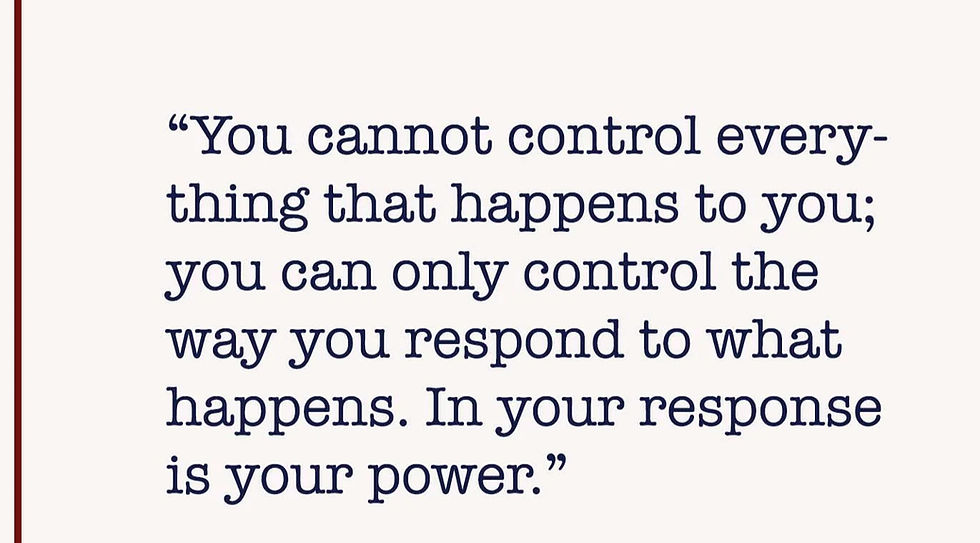How to cultivate a sense of unconditional self-worth
- Kirandeep Kaur

- Jun 19, 2023
- 4 min read

I have struggled with feelings of unworthiness for as long as I can remember.After several years of therapy, spiritual growth and providing therapy for my clients, I’ve finally begun to cultivate unconditional self-worth and shed the belief that “I’m not good enough”. I’m embracing myself — quirks and all — and this new path is liberating, enlivening and life-giving.
Let me share what I’ve learned with you. But before I do, you might be wondering if this is just more advice about self-esteem.I just want to clarify: Self-worth is not the same as self-esteem.
Our self-esteem is derived from our abilities, accomplishments, social positions and things we believe and we can achieve. We can bolster our self-esteem by improving our skills or performance, and our self-esteem goes up and down depending on how we’re doing in various aspects of our lives.
In contrast, unconditional self-worth is distinct from our abilities and accomplishments. It’s not about comparing ourselves to others; it’s not something that we can have more or less of. Unconditional self-worth is the sense that you deserve to be alive, to be loved and cared for. To take up space. Self-compassion involves treating yourself the way you would treat a friend who is having a hard time—even if your friend blew it or is feeling inadequate, or is just facing a tough life challenge. Western culture places great emphasis on being kind to our friends, family, and neighbors who are struggling. Not so when it comes to ourselves. Self-compassion is a practice in which we learn to be a good friend to ourselves when we need it most—to become an inner ally rather than an inner enemy. But typically we don’t treat ourselves as well as we treat our friends.
Unconditional self-compassion is the antidote to low self-worth. It is a way out of self-criticism, shame and unhealthy behavior. It is a way out of depression, anxiety and substance abuse. It is time for us to base our worth on the fact that we are human to cultivate a worth that persists even when life does not go as we hoped.
Cultivating unconditional self-compassion and self-worth is an ongoing practice. Here are four ways you can begin to feel more worthy starting right here, right now:
1. Forgive yourself
Many of us struggle to feel worthy, because we are angry with ourselves about past mistakes. Forgiveness involves acknowledging and accepting what has happened. Acceptance releases us from blaming ourselves and others and allows us to move forward.
To forgive yourself, reflect on the circumstances that led to past mistakes, acknowledge the pain you experienced and identify what you learned from the situation. Then say to yourself “I forgive you” — in an honest and kind way.
2. Practice self-acceptance
I think many of us struggle with low self-worth because we think there’s something wrong with us and we refuse to accept ourselves the way we are. We receive so many messages that we are not OK the way we are. We’re told that we need to change our bodies, our clothes, our jobs or even our personalities to be acceptable.
See if you can let go of the thoughts you have about how the way you think, feel or look should be different. Instead, focus on the things you like about yourself. Over time, begin to embrace your quirks — your awkward laugh, your crooked smile, your unusual way of thinking about things. Through this acceptance, you’re acknowledging that you are worthy just the way you are.
3. Be there for yourself
When life gets rough, many of us abandon ourselves during times of challenge. We engage in harsh self-criticism — which only leaves us feeling worse. What we need most when we are going through a difficult time is for someone to say “I see you. I see how badly you’re hurting. I’m here.”
We can do this for ourselves.
The next time you experience emotional pain, acknowledge how you were feeling and offer yourself some comfort. Place your hand on your chest, give yourself a hug or say something kind and soothing to yourself.
4. Connect to supportive people
Low self-worth can leave us feeling isolated and alone. When we think there’s something wrong with us, we tend to pull away from our relationships, and this isolation only exacerbates our feelings of unworthiness. Knowing that we are not alone in our struggles and pain reminds us that challenges don’t make us unworthy. Connecting to people who are supportive helps us to get in touch with our humanity and our sense of worth.
One last thing: The journey to unconditional self-worth is not always easy. The path is not straight or smooth, and you’ll face setbacks along the way — I certainly have.
It takes courage to free yourself from the conditions you’ve placed on your worth. The process of forgiveness can be messy, it can be scary to accept ourselves as we are, being there for ourselves can put us face to face with emotional pain, and connecting to others can make us feel vulnerable.
But I’m here to tell you that this journey is also beautiful and worth taking. On it, you’ll find strength, become grounded in your humanity, and know that you are worthy. So I challenge you to embrace yourselves and begin living from a place of worthiness to find your own place and move freely.



Comments